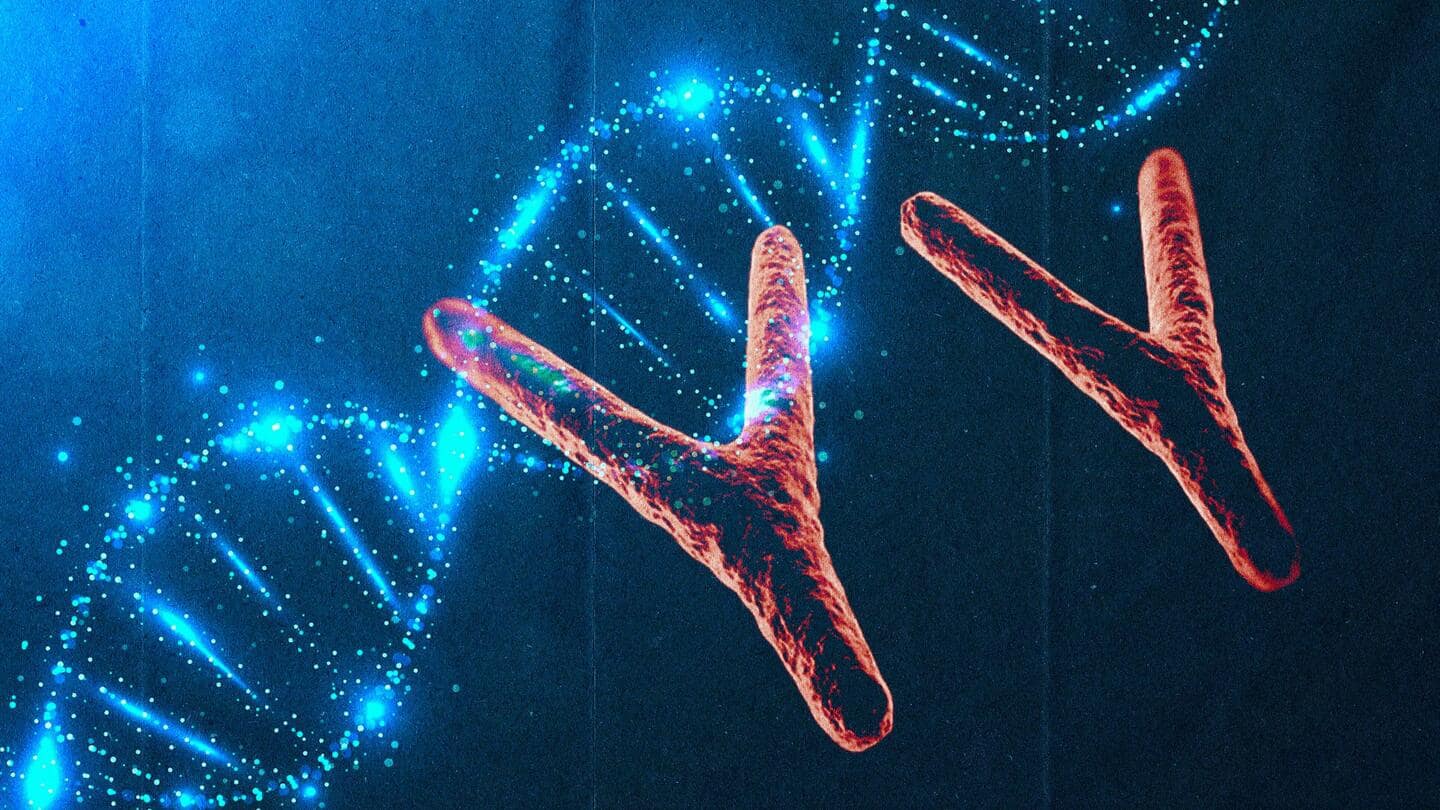
Disappearing Y chromosomes may pave way for new human species
What's the story
A new study found that the Y chromosomes are degenerating gradually across many species of mammals.
The paper studied two species of rodents. Like other mammals, humans are losing their Y chromosome as well. Could men cease to exist in the future?
Read on to learn more about the findings of this study published in Proceedings of the National Academy of Science.
Sex determining gene
How Y chromosomes determine human sex
Like other mammals, in humans too, females have two X chromosomes and males have a single X and a Y chromosome.
Y chromosomes contain genes that determine the sex of the baby.
This Y chromosome, about 12 weeks after conception, starts regulating the development of the testis which produces male hormones which ensure that the baby develops as a boy.
Gradual extinction
Degenerating Y chromosomes
The X chromosome contains about 900 genes that do all sorts of jobs unrelated to sex determination. Whereas the Y chromosome contains about 55 genes.
Researchers estimated that the latter has lost over 900 active genes over 166 million years.
That is a loss of about five genes per million years.
Considering the rate, the remaining 55 genes will vanish in 11 million years.
Rodents who lost Y
Two rodent species that lost Y chromosomes
While the Y chromosome has been degenerating across many mammals, there are two rodent species, that we know of, that have survived.
They developed new sex-determining genes.
The mole voles of eastern Europe and the spiny rats of Japan have completely lost Y chromosomes and SRY (sex region on the Y).
It is not yet clear how they determine sex without the SRY gene.
End of humans?
Will humans go extinct in some million years?
The disappearing Y chromosome has evoked speculation about the future of the human race.
To reproduce, we need sperm, and for that we need men.
This means that the end of the Y chromosome could herald the extinction of the human race.
However, the study gives an alternative possibility, that humans could also evolve a new sex-determining gene like the rodents.
Ray of hope
The dual possibility
The creation of a new sex-determining gene may lead to the separation of new species, which is exactly what has happened with mole voles and spiny rats.
Perhaps there will be no humans left, or we may evolve into several different species 11 million years from now, kept apart by our different sex-determination systems.
The future is full of possibilities.